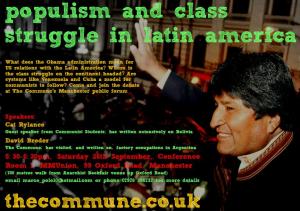Introduction by Chris Kane
Many on the Left consider Cuba a socialist country, its defiant stand against U.S. imperialism is widely admired, and the idea that there is at least one country in the world where a classless society is being built has a powerful appeal to wishful thinking. Indeed, for those who consider that the essence of socialism consists of state planning, Cuba does meet their concept of socialism.
What this ignores are the actual power relations in Cuban society. Power to decide upon economic strategy or foreign policy – or to repress dissent – is tightly held by the bureaucracy of this single party state. Capital is accumulated as state property. The mass organisations that exist are controlled from above; they do not express the free opinions of the workers, still less do they enable the workers to control production.
Here we reprint an article written by Raya Dunayevskaya in 1960, just one year after Castro’s guerrilla movement swept to power. Dunayevskaya reveals the new forms of class domination that were already being established in that unfinished revolution, and sharply criticises the “old radicals” who (then as now) cast themselves as cheerleaders for state-capitalism in Cuba. This article was originally published in the U.S. Marxist-Humanist paper, News & Letters, in December 1960. Continue reading “the cuban revolution – raya dunayevskaya (1960)” →



